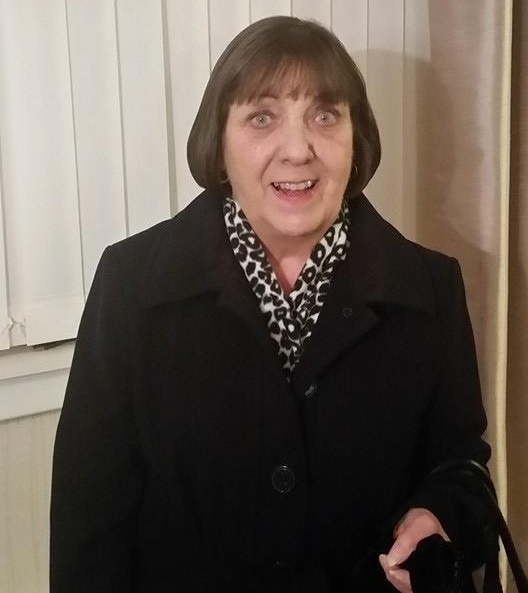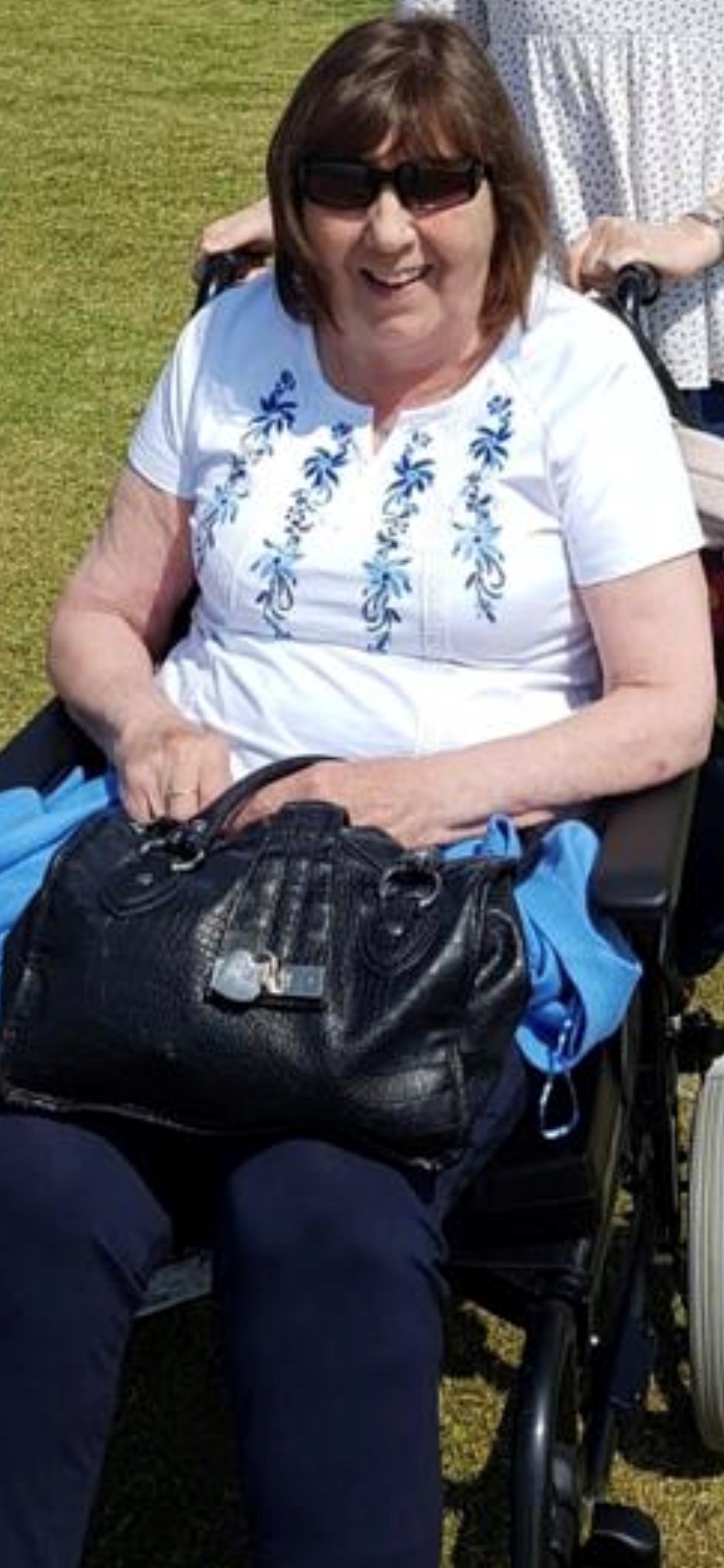What is MND
Find support
I have MND
I am supporting someone
Get involved
Research
About MND Scotland
What’s new?
© MND Scotland 2024
© MND Scotland 2024

Helen shared her “distressing” experience of securing end-of-life care at home for her mum, which was eventually put in place with the support of MND Scotland’s advocacy team.
This followed a BBC Scotland report which highlighted a 41% rise in deaths in the community since the start of the Covid pandemic, prompting Scottish charities to call for more support for people dying at home, and a new national strategy for palliative care.
Anne (pictured) was diagnosed with the rapidly progressing terminal illness MND in 2015 and had always expressed her wish to die at home.
Just a few weeks after Anne (74 at the time) witnessed the sudden death of her husband Jim (pictured above) at home, she was admitted to hospital with an abscess in June 2020, where her condition began to rapidly deteriorate.
Helen (53, from Greenock) said: “Due to Covid restrictions I wasn’t able to visit mum for the first week and because she could no longer communicate, I had to write notes and try to past them through the hospital staff. This was just the start to the awful six weeks leading up to her death.

Helen wanted to move her mum home as soon as possible but was told by social work this would not be possible as she would require 24/7 care and would therefore need to be moved to a care home.
Coping with grieving for her father, caring for her mother, working full-time as a counsellor and recovering from long Covid, Helen now needed to fight for social, and palliative, care at home for her mum, to allow her to die in the comfort of her own home.
She said: “It was horrendous. With MND there is no hope. You’re in that grieving process from the moment of diagnosis. That is hard enough as it is, without having a fight on your hands about how the last months, weeks or days are spent.
“My mum was very adamant that she didn’t want to go to a care home. So, all my time and energy went into trying to make sure this didn’t happen, and it meant I missed valuable time with my mum at the end. I wouldn’t want anyone else to have to go through that.”
Helen reached out to MND Scotland for support, and the charity advocated for Anne to be moved home with a full 24/7 package of care, which was eventually agreed.
Helen said: “My mum’s MND nurse, who was great, had been trying to help and suggested getting in touch with MND Scotland’s Advocacy Worker, Suzie. From the day Suzie got involved she took it out of my hands and did all the negotiations, so I wasn’t doing it alone. She was fantastic and really proactive, but it still took longer than I’d hoped.”
Sadly, Anne never regained consciousness after being discharged from hospital and just one week later, she passed away.
Helen said: “Because she wasn’t conscious when we finally got her home, the big question for me was – did she actually know she was at home? That’s really hard for me. I’m still angry that she didn’t get home sooner, when she was more lucid, because the processes and resources aren’t in place for that to happen quickly. I really hope that changes for other people.”
Unfortunately, even when Anne’s care package was agreed, the process to implement this was not straightforward either.
Helen said: “It was all very undignified. I was told they needed four people to get her home in the ambulance, which caused more delays, and it ended up being just two people. I was also told the carers would be there before she arrived but there was no team in place, so I was left alone with my mum for over an hour until they came. The ambulance staff did their best, but I could see she was uncomfortable. I couldn’t move her myself. There was nothing I could do. It was horrendous and really very distressing to see your mum like that.
“There should be a more streamlined process and better communication between teams. It was so stressful and something you don’t need when your time is already limited.
“I was grateful to get her home and have someone with her 24 hours, and it was better than the alternative, but it did feel like there was a different carer every day, who didn’t specialise in MND. So even though we had them there I was still worrying and checking in to make sure everything was done properly. For the last week of her life, it was a like a revolving door, people constantly traipsing through the house. It just felt very impersonal.
“I know you won’t get a perfect service, but it was all too little too late in my book. There needs to be more awareness, understanding and compassion. If we can make the practical day-to-day challenges a bit easier for families, which should be in place as a given, it would give people more strength to deal with the hopelessness of MND.”
Helen added: “I just didn’t feel like I had enough quality time with my mum. I was always having to do something or chase something up, so I couldn’t sit with her and have a coffee, or just simply be with her.
“Dealing with a diagnosis of MND is horrific in itself – you shouldn’t have to spend your time and energy fighting the system to get things in place to make someone’s quality of life a bit better.
“Hopefully, it’s not too late for other people, and something can be done to prevent this happening to another family.”
Susan Webster, MND Scotland’s Head of Policy and Campaigns, said: “MND is brutally fast, so people need care put in place quickly.
“Anne’s condition deteriorated so rapidly that she went from having four visits a day, to needing 24/7 social care, and palliative care, in just a matter of weeks. Stories like Anne’s are not uncommon, and some people never receive the care they need in time.
“Our advocacy team is here to help people living with MND when the system fails, but it shouldn’t be this way. Families should be able to spend quality time with their loved ones, not fighting the system or worrying that the care put in place isn’t adequate.
“It is fantastic that the Scottish Government is committed to establishing a National Care Service. However, it is essential that social care, and palliative care, are adequately resourced and responsive enough to be able to meet the needs of people with rapidly progressing, terminal illnesses like MND, enabling them to die at home if they choose.”
We need your help, so we can continue to be there for people living with MND when the system fails. If you can, please donate online here.
Sign up
for newsletter
Get the latest news and events straight to your inbox
You can help create a world without MND